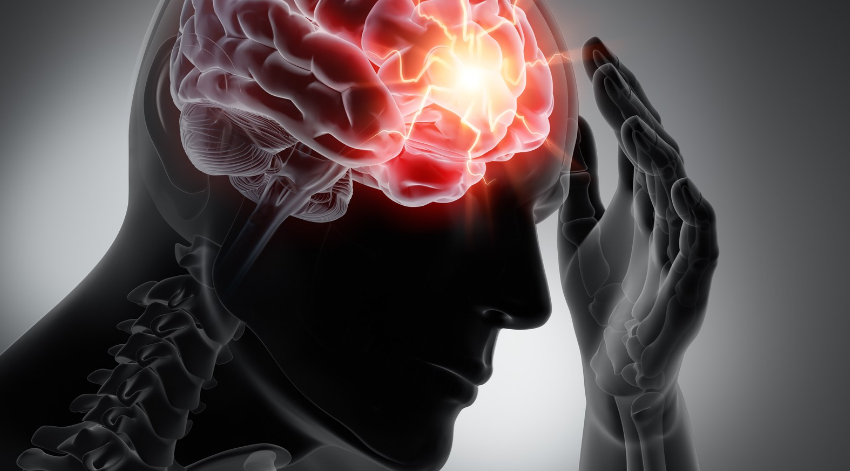Key Takeaways
- Brain injuries can significantly affect day-to-day functioning and cognitive abilities.
- Understanding how these injuries affect different aspects of mental processing is crucial for effective treatment and management.
- Various rehabilitation strategies can help improve cognitive function post-injury.
- Staying informed and seeking appropriate medical advice is essential to the recovery journey.
Brain injuries can impair memory, attention, and problem-solving abilities, affecting daily activities and independence. Individuals may also experience communication, emotional regulation, and physical coordination difficulties. Rehabilitation and support are essential to managing these challenges and improving the quality of life for those affected by brain injuries.
Introduction
Brain injuries can be life-altering, affecting more than just physical health. They profoundly impact cognitive function, influencing behavior, emotions, and daily activities. Brain Injury Treatment offers a range of therapies designed to enhance the quality of life and encourage healing for individuals looking for specialized rehabilitation programs. This article delves into how brain injuries affect cognitive function and daily life and what can be done to mitigate these effects.
Understanding the long-term impact of brain injuries is essential for anyone affected by such conditions. Proper treatment and rehabilitation can make a significant difference, emphasizing the need for tailored programs like those available through Brain Injury Treatment Denver. Being well-informed is the first step towards managing the complexities associated with brain injuries.
Types of Brain Injuries
The severity of brain injuries varies and can be brought on by a variety of events, such as falls, accidents, sports-related injuries, and illnesses. Mild brain injuries, like concussions, often result in temporary cognitive disruptions that typically resolve with rest and medical treatment. Severe brain injuries can result in permanent or long-lasting deficits, such as traumatic brain injuries (TBI) and contusions. Understanding the types of brain injuries—such as concussions, bruises, and traumatic brain injuries (TBI)—is essential for grasping their impact on cognitive function.
Medical professionals must categorize brain injuries to determine the appropriate course of treatment. For instance, a concussion might only require rest and monitoring, while a severe TBI could necessitate surgical intervention and extended rehabilitation. By classifying the injury correctly, healthcare providers can offer the most effective treatments to enhance recovery and quality of life.
Cognitive Function and Brain Injuries
The brain is the control center of our mental faculties. Various cognitive abilities, including memory, attention, and problem-solving techniques, may be compromised when hurt. The brain’s complex structure means damage can unpredictably affect multiple cognitive functions. According to BrainLine, the extent and type of mental dysfunction depend on the severity and location of the injury. Some individuals may experience memory lapses, while others struggle with attention and concentration.
Cognitive impairments can be particularly challenging because they affect every aspect of daily life. From remembering appointments to processing new information, the impact of a brain injury on cognitive functions can be pervasive and debilitating. Both patients and their caregivers must understand the potential cognitive challenges to better prepare for and manage these difficulties.
Daily Life Impacts
Beyond cognitive deficits, brain injuries can disrupt daily activities and routines. The ripple effect of a brain injury can be overwhelming, from difficulty performing work tasks to social interaction challenges. Simple tasks like grocery shopping or following a recipe can become significant hurdles. These disruptions can lead to decreased independence and an increased reliance on caregivers, adding emotional and financial stress to the individual’s and their family’s lives.
Furthermore, the social impacts of brain injuries can be profound. Many affected individuals struggle to maintain relationships or engage in social activities. The frustration of not being able to communicate effectively or remember essential details can lead to social isolation and depression. Understanding these daily impacts is crucial for creating effective support systems and rehabilitation plans.
Rehabilitation Strategies
Effective rehabilitation strategies can make a substantial difference in recovery. These could consist of speech, occupational, and physical therapy. According to the Centers for Disease Control and Prevention (CDC), customized rehabilitation programs are crucial as they address the unique needs of each individual. Rehabilitation goals typically focus on restoring lost functions, adapting to new limitations, and improving overall quality of life.
The key to successful rehabilitation lies in a multidisciplinary approach. Combining various therapies ensures that all aspects of recovery are addressed, from physical mobility to cognitive function and emotional well-being. The rehabilitation plan must be regularly assessed and modified to monitor progress and handle any new issues successfully. The support and involvement of family members and caregivers also play a vital role in the success of rehabilitation efforts.
Importance of Medical Advice
Seeking medical advice and following a tailored treatment plan is essential for anyone suffering from a brain injury. Continuous monitoring and guidance from healthcare professionals can significantly aid recovery, ensuring that complications are avoided and progress is tracked effectively. Medical professionals can provide personalized strategies to manage symptoms and improve cognitive function, offering a roadmap for recovery.
It is essential to regularly schedule follow-up sessions to assess the patient’s progress and modify the treatment plan as needed. Healthcare providers can also offer valuable resources and referrals to specialized services to further assist in the recovery journey. By staying engaged with medical professionals and adhering to recommended treatment protocols, individuals with brain injuries can optimize their recovery outcomes and achieve a higher quality of life.
Conclusion
The impact of brain injuries on everyday living and cognitive function can be profound. Understanding these impacts and adopting appropriate rehabilitation strategies can significantly aid recovery. With a comprehensive treatment approach involving medical professionals and personalized rehabilitation programs, individuals affected by brain injuries can improve their cognitive health and overall well-being.
Keeping educated and getting expert counsel are essential first steps for enhancing everyday living and cognitive health. By taking proactive measures and leveraging the resources available, those impacted by brain injuries can navigate the challenges more effectively and work towards a better quality of life.

